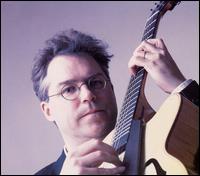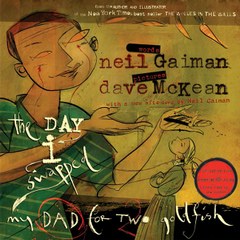Sunday, February 26, 2012
Mr. Memory
Saturday, February 25, 2012
Voices from the air
Wednesday, February 15, 2012
Updating "The Day I Swapped My Dad for Two Goldfish"
It begins as follows:
One day my mom went out and left me home with just my little sister and my dad. My dad sat in front of the television, reading his newspaper. My Dad doesn't pay much attention to anything, when he's reading his newspaper.
I revised it as follows:
One day my mom went out and left me home with just my little sister and my dad. My dad sat in front of the television, reading his iPad. My Dad doesn't pay much attention to anything, when he's reading his iPad.
Yes, yes, that is much more up-to-date!
I should add that the book is hysterically funny. I laugh my head off about some of the bits, even though I know they are coming: "Mumf, mumf, mumf," said my little sister. You'll have to get the book yourself to know why that is hysterical. :-)
Monday, February 13, 2012
Streaming services and bands
2. Bands earn money every single time a song is played on a streaming service. That's not comparable to the sale of a CD or other ways of earning money from selling music. (My comment: when you sell a CD, you don't earn money every time the consumer listens to each song.)
Friday, February 10, 2012
Home in on and hone in on
As for "treating all users of a language as worthy of respect": do you accord the same respect to people who deploy (as two examples we see on Fakebbook every day) "your" rather than "you're" and "it's" rather than "its"? If not, then perhaps you'd care to explain *why* not?
Thursday, February 09, 2012
Within Shouting Distance of the Coosa
Once in Alabama when I was young
and given to aimless ambling,
I followed a red road between pines
where even at midday the cicadas
were complaining, and with nothing
on my mind and expecting nothing
I was about to pause for water
when the road's weedy roughness
opened to a clearing where boards
wounded by years of weather
formed a modest church, the peak
of its steeple gone and door scotched
open. The wind was scattering pollen,
and somewhere off in the needles
a mockingbird thought it was evening
and half-heartedly sang. Do I need
to say I forced the door and found
everything rain-soaked and broken,
the pews only planks whose cinder
blocks had fallen or were, as I've said,
ruined? But I heard a hum or what
I thought could be a hymn rising
from behind the altar and squinted
to see the worker bees dance and circle
where they'd swarmed. Young
as I was, I understood "not one step
closer, do not disturb," so backed
away, because I knew they believed
their honey holy and would not
suffer it to be troubled without
rushing to beset me, and besides I'd
already been touched by the Word
and held under down at the river
till I heard God's gold voice shining,
insects swarming the choir's serenade,
bee sound the very sound He made.
I stumbled at the question in the middle of the poem: "Do I need / to say ...?" Until this question (and after it, in fact), the poem presents a speaker remembering an experience, and the reading of the poem is itself an experience. The question about what one "needs to say" shifts away from the experience of a poem depicting an experience to the discursive nature of the poem itself. In itself, that's not a problem: there are many successful poems that address the discursive nature of poetry as a problem. But this question seems out of place to me.
Tuesday, February 07, 2012
Dream of publication
Saturday, February 04, 2012
Habits
In this case, I only noticed that I even had a particular habit once the habit no longer functioned as such. It reminds me of this poem, which I wrote shortly before my second child was born:
HABIT
We've moved into the dining room,
and Miles into ours,
to make room for number two.
And every couple hours,
I head to what was once our room to get
something no longer there,
then turn around, amazed by habit,
by what I live in, unaware.
Light Quarterly 50, Autumn 2005
Friday, February 03, 2012
Blowin in the Wind parodies
Can you sue somebody for stealing a parody? After all, the Chenille Sisters got there first:



